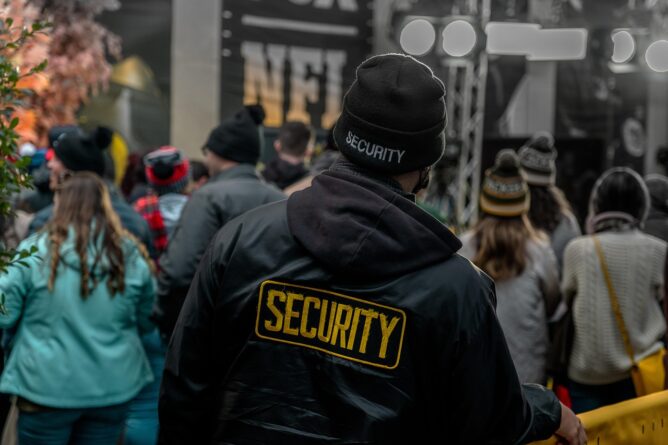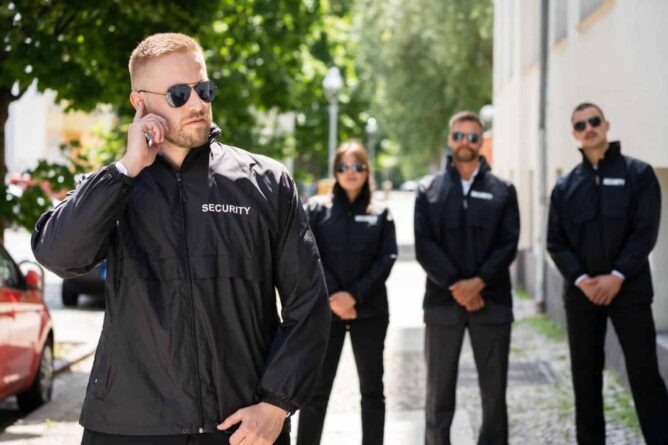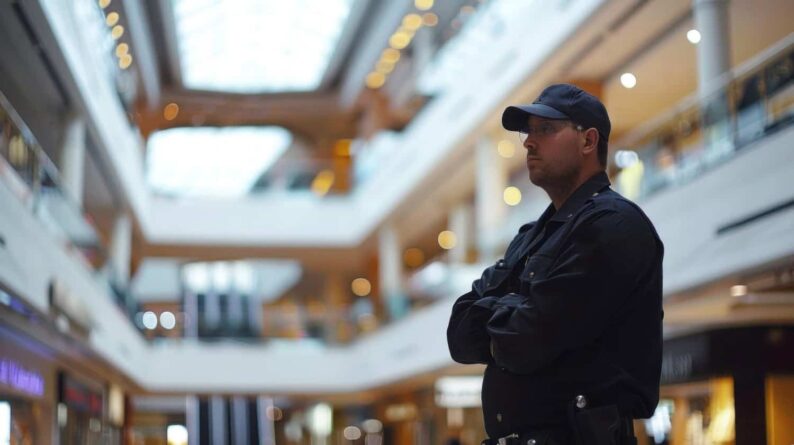A mai munkaerőpiacon egyre többen keresnek olyan hivatást, amely egyszerre kínál biztonságot, kiszámítható jövőt és tisztességes megélhetést. A gazdasági változások, a technológiai átalakulások és a gyorsan változó trendek közepette sokan érzik úgy, hogy szükségük van egy stabil pontra, amely biztos alapot jelent a családjuk és saját életük számára. Ilyen lehetőséget kínál a vagyonőri szakma, amely az elmúlt években nemcsak megőrizte a jelentőségét, hanem egyre inkább megerősödött.
A vagyonőr munkája a biztonság záloga – legyen szó üzletekről, rendezvényekről, intézményekről vagy magánterületekről. Az emberek és a vállalkozások biztonság iránti igénye soha nem csökken, sőt a modern világban egyre nagyobb hangsúlyt kap. Ez az oka annak, hogy a vagyonőri pálya ma az egyik legstabilabb és legkeresettebb hivatás, amelyre sokan pályaváltás vagy karrierindítás során gondolnak.

Miért ennyire keresett a vagyonőri pálya?
A biztonság iránti igény univerzális és állandó. Egy vállalkozás sem engedheti meg magának, hogy ne gondoskodjon értékeinek, eszközeinek és dolgozóinak védelméről. A kereskedelmi láncok, az ipari parkok, a közintézmények és a magánszemélyek mind keresik azokat a szakembereket, akik felelősséggel és hozzáértéssel végzik a vagyonvédelmi feladatokat.
A vagyonőri munka nem szűnő trend, hanem folyamatosan növekvő piaci igény. Akár gazdasági fellendülésről, akár válságos időszakról beszélünk, a biztonság mindig elsődleges marad. Ez adja a pályának azt a stabilitást, amely miatt sokan választják életpályaként.
A TanfolyamGURU vagyonőri képzése pontosan erre készít fel: olyan tudást ad, amely azonnal hasznosítható, és amely belépőt jelent egy biztos, hosszú távon is kiszámítható szakmába.
A vagyonőr szerepe a modern társadalomban
Sokan tévesen úgy gondolják, hogy a vagyonőr munkája kizárólag arról szól, hogy őrködik egy bejáratnál vagy járőrözik egy területen. A valóságban a feladat sokkal összetettebb és felelősségteljesebb.

A vagyonőr nemcsak fizikai jelenlétével, hanem szakértelmével és felkészültségével teremt biztonságot. Tudnia kell, hogyan kezeljen konfliktushelyzeteket, miként reagáljon vészhelyzetben, hogyan tartson kapcsolatot a hatóságokkal, és milyen technikai eszközöket használjon a mindennapi munkában. Az emberek gyakran észre sem veszik a vagyonőrök munkáját, pedig ők azok, akik a háttérben garantálják a rendet és a nyugalmat. Ez a felelősség adja a szakma súlyát és társadalmi megbecsülését.
Milyen készségek kellenek a vagyonőri munkához?
A vagyonőr szakma nemcsak fizikai jelenlétet, hanem komoly felkészültséget is igényel. Fontos a határozottság, a nyugodt fellépés és a megfelelő kommunikáció. Egy jó vagyonőr képes higgadtan kezelni a feszült helyzeteket, felismerni a veszély jeleit, és megelőzni a problémákat. Ugyanakkor szükség van a technikai ismeretekre is: a modern vagyonőr kamerarendszereket kezel, beléptetőrendszert felügyel, riasztásokat kezel és dokumentációt vezet. Ezek mind olyan készségek, amelyek tanulhatók és fejleszthetők – a megfelelő képzés mellett.
A TanfolyamGURU képzéseiben külön figyelmet fordítanak arra, hogy a hallgatók ne csak az alapvető biztonsági ismereteket sajátítsák el, hanem a modern technológiai eszközök használatát és a kommunikációs készségek fejlesztését is.
A vagyonőri pálya előnyei: stabilitás és biztonság
A mai világban sok szakmát fenyeget az automatizáció és a digitalizáció. A vagyonőri szakma azonban pont azon alapul, ami a gépekkel nem helyettesíthető: az emberi jelenléten, a döntéshozatali képességen és az empátián.
Ez a pálya nemcsak stabil, hanem jövőálló is. Egy vagyonőr munkájára mindig szükség lesz, és ez a tudat komoly biztonságot jelent azoknak, akik ezt a hivatást választják. Emellett a szakma gyors belépést is kínál a munkaerőpiacra: a megfelelő képzés elvégzése után rövid időn belül elhelyezkedhetünk.

A TanfolyamGURU tanfolyamai ráadásul rugalmasan végezhetők, online és gyakorlati elemek kombinációjával, így bárki könnyen megszerezheti a szükséges tudást.
Biztos kereset és előrelépési lehetőség
A vagyonőri munka nemcsak stabil állást, hanem tisztességes jövedelmet is kínál. Az alapfizetés mellett sok helyen járulékos juttatások, pótlékok és túlóralehetőségek is elérhetők. A szakmában ráadásul előrelépési lehetőség is van: a tapasztalat és a további képzések révén valaki hamar válhat biztonsági vezetővé, telephely-felügyelővé vagy akár saját vállalkozás indítójává.
A pályázati lehetőségek pedig újabb távlatokat nyitnak: az önkormányzatok és intézmények bevonásával olyan projektek indulhatnak, amelyek a közösségi biztonságot erősítik, és ezzel együtt új munkahelyeket teremtenek. Aki ma megszerzi a szükséges képesítést, az a jövőben számos területen kamatoztathatja tudását.
A közösségi biztonság értéke
A vagyonőri pálya nemcsak egyéni karrierút, hanem közösségi felelősségvállalás is. Egy település biztonsága alapfeltétele annak, hogy ott élni és dolgozni lehessen. Amikor jól képzett vagyonőrök dolgoznak egy közösségben, az nemcsak a lopások számát csökkenti, hanem növeli az emberek biztonságérzetét, és erősíti a közösségi összetartozást.
Ez a munka tehát túlmutat az egyénen: valódi társadalmi értéket teremt. Ezért is tartják sokan hivatásnak, nem pedig pusztán állásnak.

Miért válaszd a TanfolyamGURU képzését?
Mert a TanfolyamGURU olyan programokat kínál, amelyek nemcsak a szakmai alapokat adják meg, hanem gyakorlatias, azonnal használható tudást biztosítanak. A képzés végén államilag elismert tanúsítványt szerezhetsz, amely belépőt jelent a szakmába, és amelyet minden munkáltató elfogad.
A TanfolyamGURU előnye, hogy rugalmas tanulási lehetőségeket biztosít, mentorprogramot kínál, és folyamatos támogatást ad a hallgatóknak. Így nemcsak megtanulod a szakmát, hanem magabiztosan és felkészülten indulhatsz el a pályán.
Stabil jövő egy biztos szakmában
A vagyonőri pálya egyre több ember számára jelenti a stabilitás és a kiszámíthatóság útját. Ez egy olyan szakma, amelyben a munka biztos, a kereset tisztességes, a jövő pedig előre láthatóan erősödni fog.
A TanfolyamGURU képzései lehetővé teszik, hogy bárki beléphessen ebbe a világba, és olyan szakmai tudást szerezzen, amely hosszú távon is értéket jelent. Akár pályakezdőként, akár karrierváltóként, akár közösségi szereplőként gondolkodsz a jövődről, a vagyonőri pálya biztos alapot kínál.

Stabil munka, biztos kereset – ezért választják sokan a vagyonőri pályát. A kérdés már csak az, hogy Te készen állsz-e csatlakozni hozzájuk?

